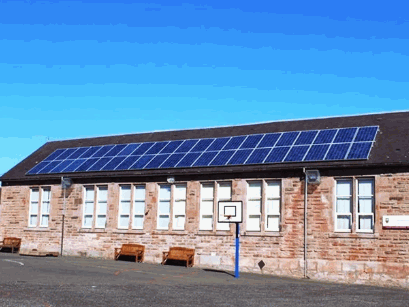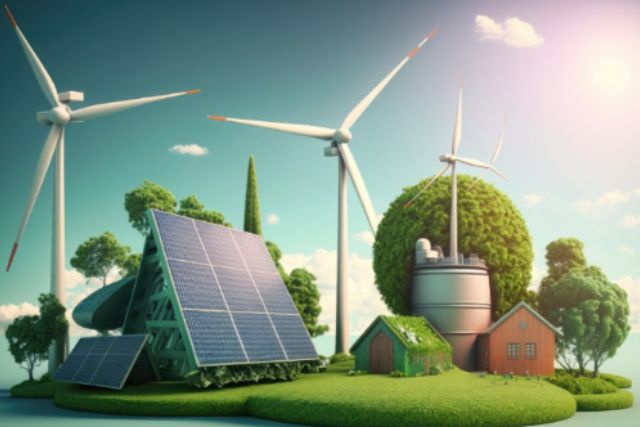Have you ever wondered what solar energy is and how it is generated?
We will explore the different types of solar energy, their benefits, and the various ways they can be utilised.
From reducing electricity bills to being environmentally friendly, solar energy has a wide range of uses including electricity generation, water heating, and even solar cooking.
Join us as we delve into how solar energy can be harnessed in different industries such as agriculture, transportation, and healthcare.
Learn more: How To Install Solar Panels On Roof
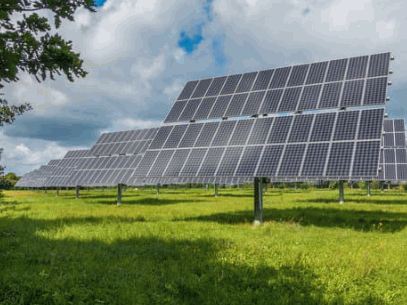
How Is Solar Energy Generated?
Solar energy is generated through the use of photovoltaic (PV) cells that convert sunlight directly into electricity.
These PV cells are typically part of solar panels, which are often used on rooftops or in large solar farms to harness the power of the sun. When sunlight hits the PV cells, the photons in the sunlight knock electrons loose from atoms, generating an electric current. This direct conversion of sunlight into electricity is a key advantage of solar energy, making it a clean and renewable source of power.
Solar energy can be stored in batteries or fed directly into the electricity grid. Solar generators play a crucial role in capturing and converting solar energy into usable electricity. These generators can vary in size and capacity, from small units for residential use to large-scale installations for commercial or industrial purposes.
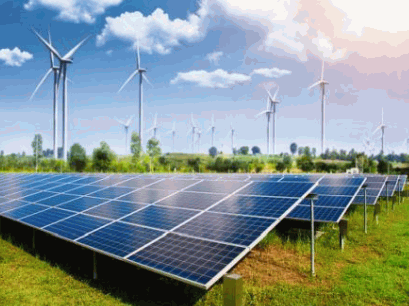
What Are The Different Types Of Solar Energy?
There are several types of solar energy technologies, including photovoltaic (PV) solar power, thermal energy systems, flat-plate collectors, and solar ponds.
- Photovoltaic solar power systems utilise solar panels to convert sunlight into electricity through the photovoltaic effect. These systems are commonly seen on rooftops and in solar farms, providing clean and renewable energy.
- On the other hand, thermal energy systems harness the sun's heat to generate electricity or heat water for residential or commercial use. Flat-plate collectors are devices that absorb solar energy for heating purposes, while solar ponds are large bodies of water used to collect and store solar heat for industrial applications.
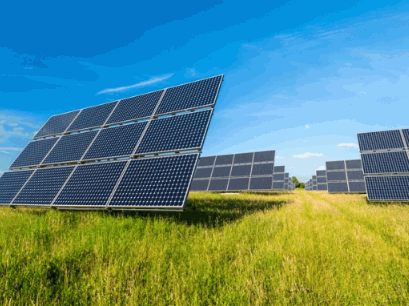
What Are The Benefits Of Solar Energy?
The benefits of solar energy are numerous, ranging from its renewable nature to its potential for reducing electricity bills and contributing to a sustainable future.
Renewable And Sustainable
Solar energy is a renewable and sustainable energy source because it harnesses the endless supply of sunlight from the Sun.
This abundant resource provides a consistent flow of energy that can be captured through solar panels and converted into electricity or heat. The benefits of solar power systems extend beyond just generating electricity; they also help in reducing greenhouse gas emissions and mitigating climate change. By decreasing reliance on fossil fuels like coal, oil, and natural gas, solar energy plays a crucial role in transitioning towards a cleaner and more sustainable energy future.
Reduces Electricity Bills
One of the major benefits of solar power is its potential to significantly reduce electricity bills for homeowners and businesses alike.
By leveraging the capabilities of the sun, solar panels can generate clean and efficient electricity. Once installed, these panels continuously produce solar electricity with minimal maintenance required, allowing users to rely less on traditional grid power sources. This translates into substantial cost savings over time as households and commercial establishments can offset a significant portion of their electricity consumption. Some regions offer incentives and rebates for adopting solar energy, further lowering installation costs and increasing the financial benefits of transitioning to renewable energy.
Low Maintenance Costs
Solar panels generally have low maintenance costs, which contributes to their long-term cost-effectiveness and reliability.
Due to their design simplicity and lack of moving parts, solar panels require minimal upkeep. Regular cleaning with water and a mild detergent to remove dirt and debris is usually all that is needed to keep them functioning optimally. Checking for any shading from nearby trees or structures can ensure maximum sunlight exposure, improving energy production efficiency.
- In addition, the durability of solar panels is remarkable, with many reputable manufacturers offering warranties that last 25 years or more. This longevity ensures that once installed, solar panels can continue generating clean energy for decades with minimal maintenance.
Environmentally Friendly
Solar energy is an environmentally friendly energy source, as it produces no greenhouse gases or pollutants, a fact championed by innovators like Mária Telkes.
One of the significant environmental benefits of solar energy is its role in reducing carbon footprints. By leveraging the capabilities of the sun to generate electricity, solar panels help decrease reliance on fossil fuels which are major contributors to greenhouse gas emissions. This clean energy source plays a vital part in mitigating climate change and promoting sustainability.
In addition, the use of solar technology helps in reducing pollution levels. Traditional energy sources like coal and oil release harmful pollutants into the air, water, and soil during their extraction and combustion processes. By transitioning to solar power, we can significantly lower these pollutants and improve overall air quality.
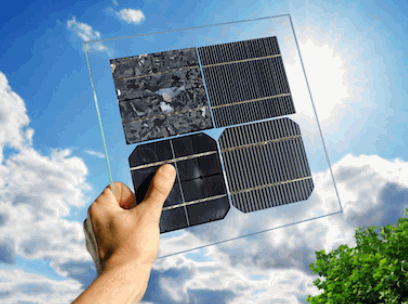
What Are The Uses Of Solar Energy?
Solar energy has a wide range of applications, from generating electricity to heating water, cooling buildings, and even cooking food using solar cookers.
Electricity Generation
Electricity generation using solar energy involves the use of solar panels equipped with PV cells to convert sunlight into electrical power.
Solar panels are essential components in this process, as they are made up of interconnected photovoltaic cells that work together to capture sunlight and convert it into direct current (DC) electricity. These PV cells are typically made from semiconductor materials such as silicon, which have the ability to produce an electrical current when exposed to sunlight.
The electricity generated by solar panels can be used to power homes, businesses, and even entire communities, reducing reliance on traditional fossil fuels and lowering carbon emissions. Solar electricity is a clean and renewable source of energy that plays a crucial role in diversifying the energy supply and combating climate change.
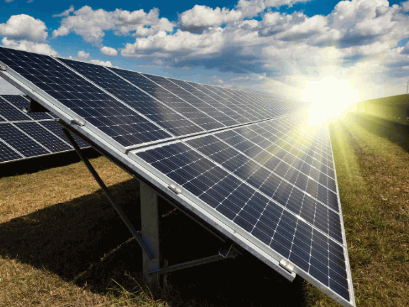
Heating Water
Solar water heating systems use flat-plate collectors to absorb solar energy and heat water for residential and commercial use.
These systems operate by transferring heat from the sun to water stored in a tank, providing a reliable and sustainable source of hot water. Unlike traditional water heating systems that rely on electricity or gas, solar water heating technology is environmentally friendly and reduces carbon emissions.
Flat-plate collectors, typically installed on rooftops or in open areas, consist of a dark flat-plate absorber that heats up when exposed to sunlight. The heated absorber then transfers this heat to a fluid running through pipes, which in turn warms up the water in the storage tank.
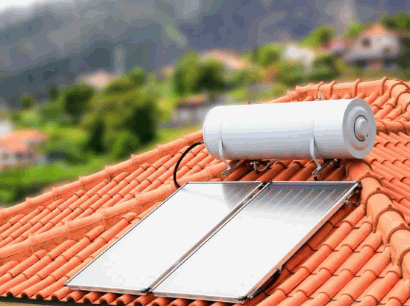
Heating And Cooling Buildings
Solar energy can be used for both heating and cooling buildings through systems such as solar heating and solar ventilation.
Solar heating systems, work by capturing the sun's energy and converting it into heat that can be distributed throughout a building. This process typically involves solar panels that absorb sunlight and then transfer it to a heat exchanger or thermal mass for storage.
On the other hand, solar ventilation systems utilise solar power to run fans or other ventilation equipment that helps regulate indoor temperature. These systems can help reduce the need for traditional heating and cooling methods, thereby lowering energy costs and reducing environmental impact.
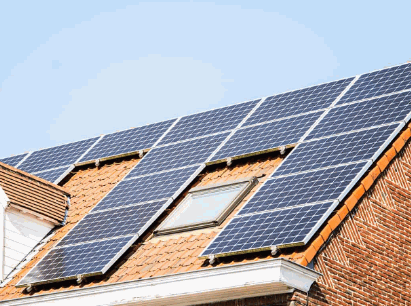
Solar Cooking
Solar cooking involves using solar ovens to harness sunlight for cooking food, providing an eco-friendly and cost-effective cooking method.
When sunlight enters the solar oven through a glass panel, it gets absorbed by the dark interior, converting it into heat energy. This heat stays trapped inside, allowing the food to cook gradually and thoroughly. It's a slow cooking process, but the end result is delicious and nutritious meals.
One of the significant advantages of solar cooking is its sustainability and reduction of carbon footprint. Not only does it eliminate the need for conventional fuel sources, but it also reduces indoor air pollution.
Along with solar ovens, portable solar devices like solar backpack cookers, solar kettles, and solar grills have gained popularity among outdoor enthusiasts and campers. These devices provide a convenient and environmentally friendly way to prepare meals on the go, making them ideal for camping trips or picnics in the great outdoors.
Solar Desalination
Solar desalination uses solar energy to convert seawater into freshwater, offering a sustainable solution to water scarcity.
This innovative technology harnesses the power of sunlight to evaporate seawater, leaving behind salts and impurities while collecting clean, drinkable water. By utilising renewable energy sources, solar desalination reduces dependency on fossil fuels and minimises carbon emissions, in line with the global push towards environmental sustainability.
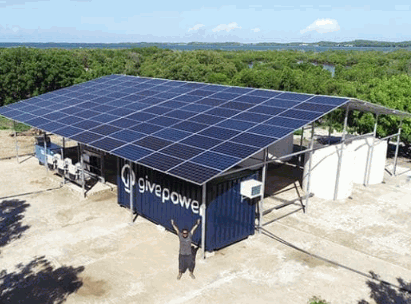
How Can Solar Energy Be Used In Different Industries?
Solar energy finds applications across various industries, utilising portable solar devices and solar power systems to achieve efficient and sustainable solutions.
Agriculture
In agriculture, solar energy systems are used for irrigation, lighting, and even solar-powered bins for waste management.
Solar energy plays a vital role in enhancing the efficiency and sustainability of farming practices. Solar-powered irrigation systems have gained popularity for their ability to provide water to crops without relying on traditional fossil fuels. This not only reduces operational costs but also minimizes carbon emissions, contributing to a greener environment. The use of solar-powered lighting extends the working hours on farms, allowing farmers to work during early mornings or late evenings, enhancing productivity. Solar-powered bins for waste management help in keeping the agricultural areas clean and contribute to a more environmentally friendly farming approach.
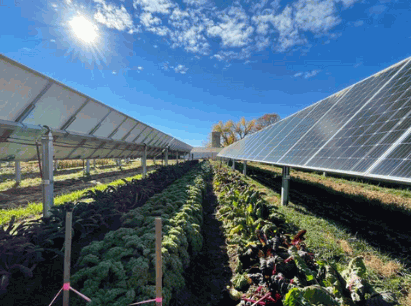
Transportation
Solar energy is increasingly being used in transportation.
One of the remarkable developments in this area is the creation of solar-powered cars, buses, and even airplanes. These vehicles harness the power of the sun to generate electricity, reducing the reliance on traditional fossil fuels. They offer a sustainable and environmentally friendly alternative to conventional modes of transportation.
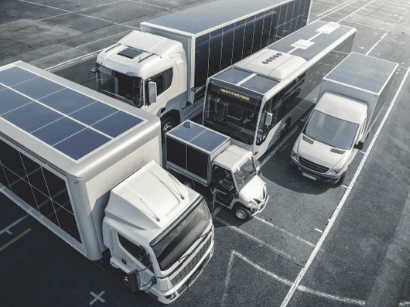
Telecommunications
Telecommunications companies are utilising solar energy to power communication towers, ensuring reliable and sustainable energy supply in remote areas.
This shift towards using solar energy in telecommunications is not only reducing carbon footprint but also decreasing dependency on traditional energy sources. Solar-powered communication towers have proven to be cost-effective and environmentally friendly alternatives. By leveraging the capabilities of the sun, these towers operate efficiently even in off-grid locations, contributing to bridging the digital divide and enhancing connectivity. Solar energy enables continuous operation, ensuring that communities in remote areas have access to essential communication services.
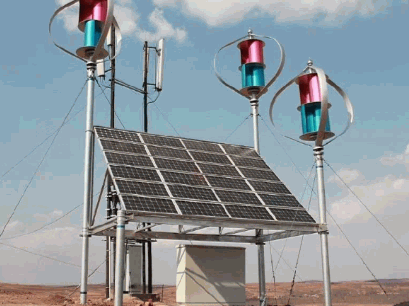
Healthcare
Healthcare facilities are incorporating solar energy to power medical devices and ensure a stable energy supply, especially in off-grid areas.
Solar energy has revolutionised the healthcare industry by powering various medical devices such as refrigerators for storing vaccines, lighting in clinics, and diagnostic equipment.
This renewable energy source not only reduces operational costs but also provides a sustainable and reliable power source in remote or resource-constrained areas.
Solar-powered devices are crucial in delivering healthcare services during emergencies or natural disasters when traditional power sources may fail.
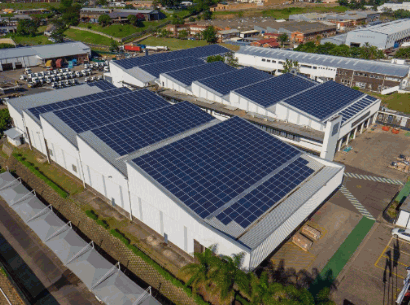
Education
Educational institutions are increasingly adopting solar energy to power educational tools and create sustainable learning environments.
Solar energy plays a crucial role in transforming traditional classrooms into eco-friendly spaces that not only reduce carbon footprint but also provide hands-on learning experiences. By utilising solar-powered educational tools like solar calculators, solar lighting systems, and solar chargers, students can gain practical knowledge about renewable energy sources and their benefits.
Incorporating solar energy in educational settings helps in reducing energy costs for schools and universities, allowing them to allocate more resources toward academic programs and student initiatives. This shift towards sustainability also instils valuable lessons of environmental stewardship and responsibility among the younger generation.
